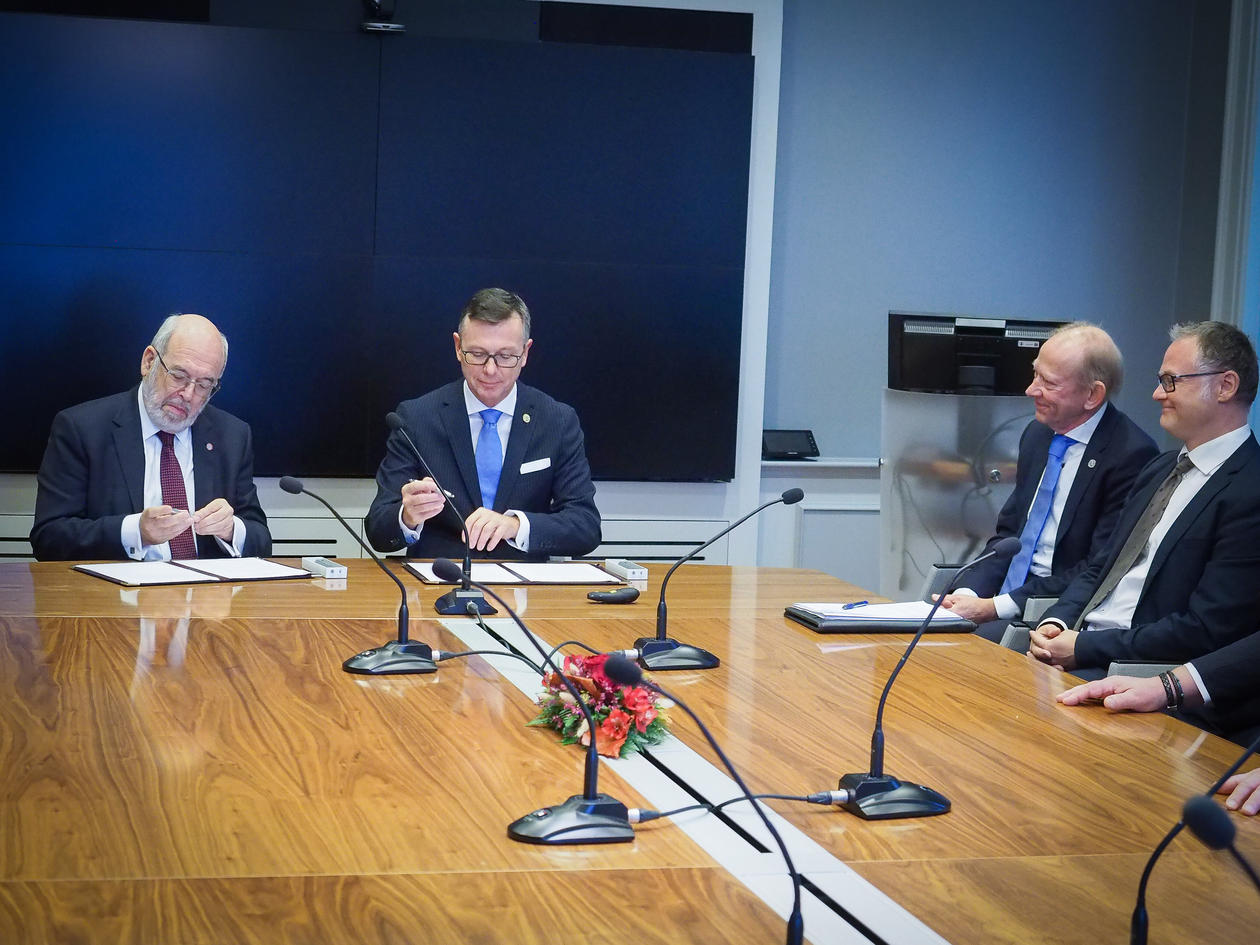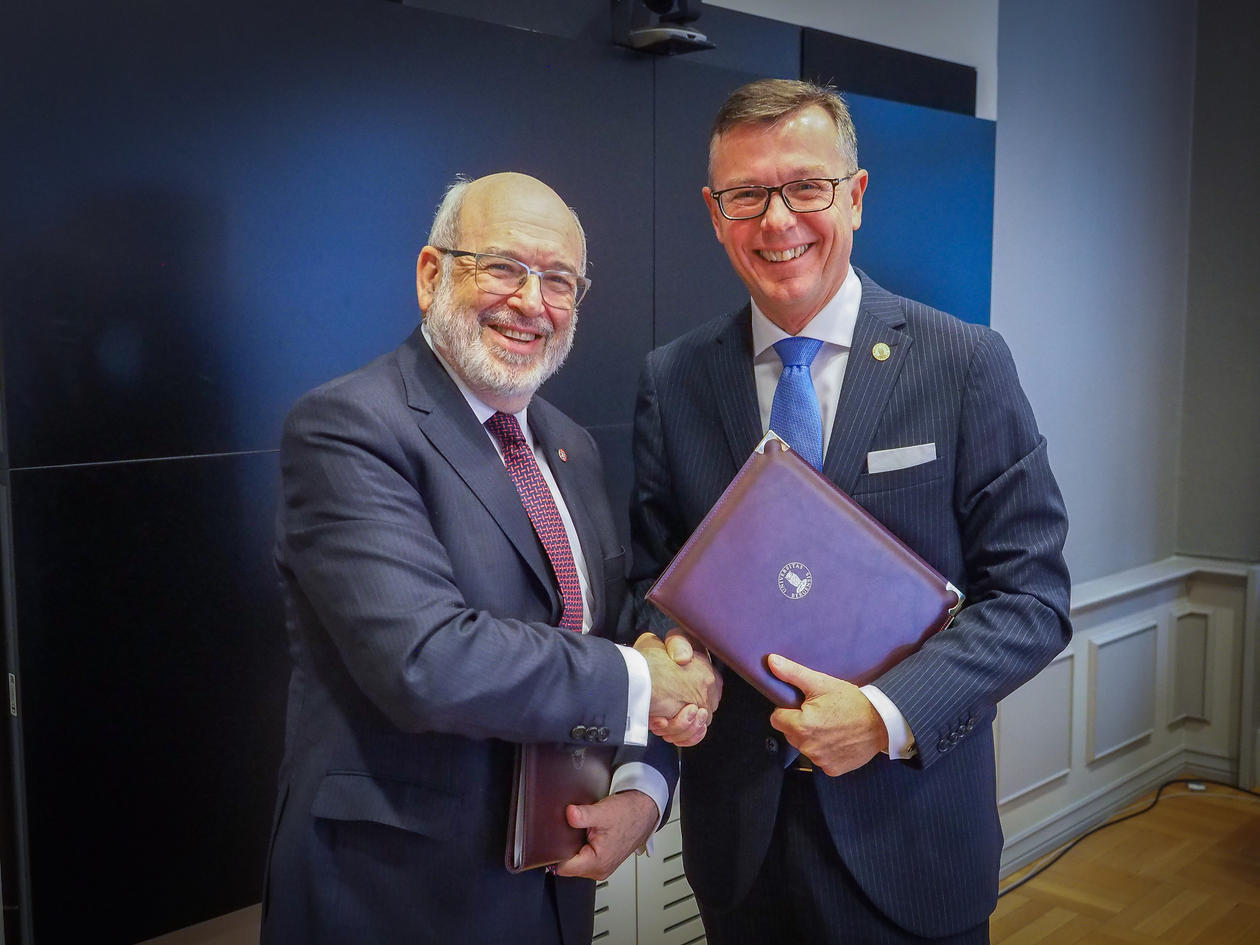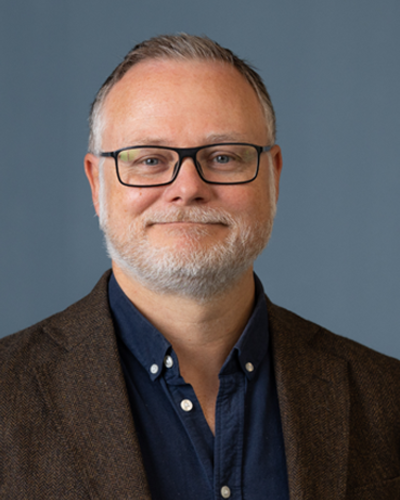Lanserer forskningsprogram om global ulikhet
Det passar godt at Nobelprisen i økonomi i år går til forsking på global fattigdom! I dag har nemleg vi og International Science Coucil signert ein avtale om å etablere GRIP, eit globalt forskingsprogram om ulikheit.

Main content
– UIB har i mange år arbeida med FNs bærekraftsmål og Agenda 2030. Vi arbeider strategisk med globale utfordringar, og med GRIPs fokus på ulikheit vil UIB kunne jobbe djupare og i sannheit globalt med dette feltet, seier rektor Dag Rune Olsen ved UiB.
I dag signerte han saman med Sir Peter Gluckman frå International Science Coucil ein avtale om å etablere eit globalt forskingsprogram om ulikheit. Programmet får namnet GRIP, og skal halde til ved Institutt for sosialantropologi ved UiB.
Les den engelske pressemeldinga om GRIP her:
“Today we are turning a new page and UiB is extremely pleased to be signing an agreement for a new programme with the ISC. UiB has for several years recognised and worked with the SDGs and Agenda 2030. With its focus on inequality—also a key part of UiB’s strategic area global challenges—GRIP will deepen this work by working truly globally”, says UiB Rector Dag Rune Olsen.
Olsen is today signing an agreement with the International Science Council to establish GRIP, the Global Research Programme on Inequality. The program is established as a radically interdisciplinary research programme that takes as its point of departure that inequality is both a fundamental challenge to human well-being and is an impediment to the achievement of the ambitions of Agenda 2030.
Since 1992, UiB has collaborated with what is now ISC to tackle poverty in the form of an earlier programme called Comparative Research Programme on Poverty. This work focused on working collaboratively with knowledge networks, institutions and scholars to promote research and policy exchange related to poverty.
Building on this legacy, GRIP will integrate different empirical and theoretical, qualitative and quantitative, local and comparative/global research approaches. Designed as a radically inter-disciplinary programme with an anchor in the social sciences, GRIP wishes to involve also health, data, natural and other sciences, in co-designed processes of knowledge construction.
“A key challenge for contemporary science is finding and identifying pathways to global sustainability that can reduce inequality and lift people out of poverty. Some of the significant gains that have been made in reducing poverty are now being threatened by pressing global challenges such as climate change, biodiversity loss and conflict. The GRIP programme, by providing a vibrant and interactive network of social scientists that collaborate on these issues, can build the critical knowledge required to identify and develop these pathways”, says Mathieu Denis, Science Director at ISC
An increasing amount of knowledge has established that inequality is a multidimensional and complex challenge to human development, prosperity and well-being. Research has also suggested that inequalities—in wealth, lifespan or geographies, for instance—may actually be increasing rather than being reduced. In such a dire global context and acerbated by increased climate change, GRIP approaches inequality as irreducible to socio-economic indicators alone. GRIP therefore proposes to understand inequality through six inter-related domains, namely as social, economic, political, environmental, cultural and knowledge-based forms.
“GRIP will not only be doing research on the global south but work with and in those areas in a search to re-connect various epistemic traditions from across the globe. In order to do research on inequality and in order to produce actionable results, such a global approach is indispensable”, says Olsen.
In working globally, GRIP acknowledges and engages with the rising importance of the economies and knowledges in the Southern hemisphere.
This means:
- Integrating partners and teams from across the globe around a common research framework that reflects plural epistemic traditions, including perspectives and concerns from the Global South.
- Bringing together various research domains in new ways, and combining various forms of material, including laboratories, big data, data sets, archives or other social science material.
- Providing a framework facilitating collaboration across disciplines and knowledge systems around problems of inequality.
GRIP is jointly hosted by UiB and ISC who will both define the programme mandates and a general framework for its activities. UiB will host the program secretariat and provide its main source of funding.


